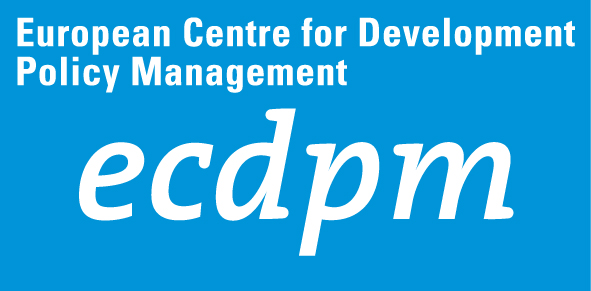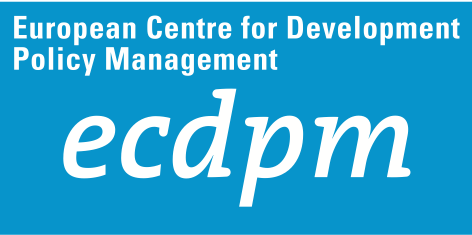Aftermath of war in Europe - The West vs. the Global South (Report)

On February 15th, the ECDPM hosted the presentation of the book “Aftermath of war in Europe - The West vs. the Global South” which takes into consideration the Global South’s perspective on the global “polycrisis” spurred by Covid-19, climate change, and inflation brought by the war in Ukraine.
EU trade, investment and development diplomacy in a fragmented world: The SDGs and the Global Gateway (Report)

On February 8, ECDPM hosted a public discussion on “EU Trade, Investment and Development Diplomacy in a fragmented world: The SDGs and the Global Gateway” revolving around potential tensions and complementarities between EU trade, developmental and investment policies focusing on the SDGs and the Global Gateway.
InfoPoint hybrid conference: Advancing Africa-Europe digital cooperation through knowledge sharing (Report)

On January 26th it took place the Infopoint hybrid conference: Advancing Africa- Europe digital cooperation through knowledge sharing. Hans Stausboll, the Acting Director for Africa, DG INTPA, started by giving a welcoming speech and briefly introducing the D4D access project. He stated that throughout the Covid19 pandemic, we learned that digital transformation has accelerated in many spheres and therefore there is a need to start adapting to the new reality. He mentioned that human-centric digital transformation is one of the objectives of the Global Gateway strategy and it has become one of their key goals for the AU-EU partnership. He specified that the D4D Access platform focus on 4 interlink priorities areas of that collectivity, skills, governance, and entrepreneurship. He also added that the platform currently has 70 different knowledge from more than 20 different organizations.
6ème Edition de l'Africa Investment Forum & Awards

7 FÉVRIER 2023
HÔTEL INTERCONTINENTAL PARIS LE GRAND, FRANCE
La 6ème édition de l'Africa Investments Forum & Awards, organisée par le groupe Leaders League - Décideurs Magazine, aura lieu le 7 février 2023 prochain dans un nouveau lieu : l'hôtel InterContinental Paris Le Grand.
L'entrepreneuriat agricole privé en Afrique et son financement

3 février 2023, 14h-17h
Centre de conférences Pierre Mendès France
Ministère de l'Économie, des Finances et de la Souveraineté industrielle et numérique
139 rue de Bercy
75012 Paris
Hybride
Cette conférence s'inscrit dans les activités de la Chaire de la Ferdi "Politiques de modernisation agricole en Afrique".
Elle vise à illustrer la question du financement des entreprises agricoles africaines au moment où les pouvoirs publics français, sous la pression des acteurs économiques, élaborent les contours d'un instrument / guichet adapté aux enjeux du secteur et aux besoins de ses opérateurs privés.
Les intervenants partageront leur témoignage et leur vécu et formuleront les pistes à explorer pour permettre à l’agriculture africaine de relever enfin le défi de la sécurité alimentaire dans un environnement économique viable, tout en améliorant les conditions de vie de ses acteurs et en préservant les ressources naturelles.
OECD Private Finance for Sustainable Development Conference

31 ene 2023 02:00 p. m.
1 feb 2023 02:00 p. m.
online
Join the OECD Private Finance for Sustainable Development Conference 2023 – “Time to step up Private Finance for the SDGs.” The annual event brings together stakeholders from the public and private sector of developed and developing countries alike to discuss new approaches in financing the 2030 Agenda for Sustainable Development.
When? 31 January 2023 and 1 February 2023 from 14h00-17h00 CET
Where? Virtually – please register via Zoom
Development agencies and development finance institutions (DFIs)/public development banks (PDBs) collaboration to unlock sustainable investments

30 January 2023 10:00 - 14:00
ECDPM Brussels office
On 30 January 2023, 1000 – 1400 CET, SNV, with the support of ECDPM, is organising an informal closed-door roundtable bringing together a selected number of European development agencies and financial institutions to share informal views in their personal capacity, under Chatham House rules. This meeting will aim to assess the merit of a collaborative framework to help i) de-risk investments; and ii) build a pipeline of bankable projects, focusing at this stage on climate adaptation finance.
This meeting will take place at the ECDPM Brussels office and is an invitation-based, closed-door event.
Towards fairer markets in Africa and the EU – Fostering international partnerships in competition policy (Report)

On February 17, EBCAM attended the conference “Towards fairer markets in Africa and the EU – Fostering international partnerships in competition policy” at the College of Europe in Bruges, Belgium.
Three different panels took place during the day tackling cutting-edge topics like digital competition, international and regional cooperation and economic development, and the African Continental Free trade Area (AfCFTA) as a platform to foster competition.
InfoPoint hybrid conference: Advancing Africa-Europe digital cooperation through knowledge sharing

-
InfoPoint and Webex Meetings
Presentation of the D4D Access platform
As digitalisation is systematically and rapidly becoming an important part of our economies and societies, the global demand for know-how, skills and experiences related to the topic is increasing.
D4D Access is a knowledge platform that centralises, promotes, and disseminates African and European good practices and lessons on Digital for Development (D4D). Covering a wide range of topics, from e-governance to digital entrepreneurship, D4D Access contains many useful resources to support digital stakeholders in Africa and Europe – public institutions, donors, academia, companies, and civil society organisations – to advance an inclusive and sustainable digital transformation.
The future of Africa: Challenges and opportunities

25 January 2023 10:00 - 11:30
ECDPM Brussels office
On 25 January 2023, Jakkie Cilliers of ISS will present his book ‘The Future of Africa’. The book offers a critical introduction to human and economic development prospects in Africa revolving around three questions: where is Africa today, what explains the current state, and, given historical trends and what we know about the world, where do we think the continent will be in 2040? And, a final question: what can we do to create a better tomorrow?
The presentation will be followed by a discussion at the ECDPM Brussels office.




